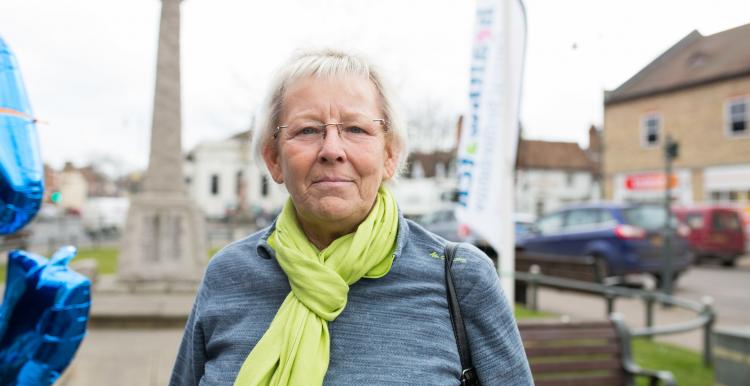Avoiding falls - elderly fall prevention

The information in this article is taken from nhs.uk and Age UK.
Some older people may be reluctant to seek help and advice from a GP and other support services about preventing falls because they believe their concerns will not be taken seriously.
But all healthcare professionals take falls in older people very seriously because of the significant impact they can have on a person's health.
Discuss any falls you have had with a GP and say if it's had any impact on your health and wellbeing.
The GP can carry out some simple balance tests to check whether you're at an increased risk of falling in the future. They can also refer you to useful services in your local area.
How to prevent falls at home
Some health conditions, medications and footwear can affect your ability to stay steady on your feet. You might not notice your health changing as it can happen gradually, so it's important to have regular checkups so any issues can be picked up before they cause a fall.
Stay active
As we get older, our muscle strength and balance reduces, which can lead to a fall. Exercises designed to improve muscle strength can reduce your risk of a fall by improving your posture, coordination and balance.
Ideas for staying active for older adults
Take care of your eyes
Our eyesight changes as we age and can lead to a trip or loss of balance. Get your eyes and glasses checked regularly – at least every 2 years. This will detect any vision problems early, before they cause you to lose your balance and coordination.
Take care of your hearing
As you get older you might find your hearing isn't as great as it used to be. Talk to your doctor as soon as you think your hearing has deteriorated, as a problem with your ears can severely affect your balance. The problem may be something easily treated, such as a build-up of ear wax or an ear infection, or it may be that you need a hearing aid.
Information about hearing loss
Combined sight and hearing problems can make it difficult to maintain your balance.
Tell you doctor if your vision or hearing difficulties, or both, are affecting your day-to-day life. They will arrange an assessment, and will explain the help available to make daily tasks easier.
Eat well
It’s important to keep an eye on your appetite and try and make sure you’re eating well. It's always better to eat something, even if it's small snacks throughout the day instead of 3 main meals. Getting enough energy is important in keeping up strength and preventing falls.
Information from the Malnutrition Task Force
Keep hydrated
As well as eating well, you should make sure you’re drinking plenty. If you don’t drink enough it’s likely that you’ll start to feel light-headed which will increase your risk of a fall. Try to drink about six to eight glasses of fluid a day.
Manage your medicines
Certain medications can make you feel faint or dizzy and affect your balance. Let your doctor know if you experience side effects like these after taking any medication – they may need to check the dose or look at alternatives.
Information about medicine management
Support your bone health
Keep your bones healthy and strong by eating calcium-rich foods, getting enough vitamin D from sunlight and doing some weight-bearing exercises.
If you have weaker bones, they're more likely to break if you fall. So stronger bones could make any injury you have much less serious.
Choose the right footwear
Problems with your feet or shoes can affect your balance and increase your risk of tripping or falling. Talk to your doctor about any foot issues.
These footwear tips can help you feel more confident on your feet:
- Make sure your shoes fit well and don’t have a tendency to slip off.
- Well-cushioned shoes offer comfort and support.
- Avoid sandals with little support and shoes with high heels.
- Wear slippers that have a good grip and that fasten and stay on properly.
- Always wear shoes or slippers, and never walk indoors in bare feet, socks or tights.
Information about keeping your feet healthy
General tips
- immediately mop up spillages
- remove clutter, trailing wires and frayed carpet
- use non-slip mats and rugs
- make sure all rooms, passages and staircases are well lit
- organise your home so that climbing, stretching and bending are kept to a minimum, and to avoid bumping into things
- get help to do things you're unable to do safely on your own
- don't walk on slippery floors in socks or tights
- don't wear loose-fitting, trailing clothes that might trip you up
What you can do if you're worried about a fall
If you’ve had a fall or you feel your balance isn’t as good as it was, it’s natural to feel worried about falling. This can become a problem if it’s causing you to avoid certain activities, such as exercise, or stopping you leaving your home.
To feel more confident and in control, think and plan ahead by discussing your risk of falling with your doctor and consider if you need to install a personal alarm in the home.
Talk to your doctor
Your doctor may perform a falls risk assessment which will work out what’s making you more likely to fall. They can also draw up an action plan to reduce your risk of falling.
Personal alarms
Personal alarms allow you to call for help, for example, if you’re unwell or have a fall and can’t reach a telephone. Pressing a button on a pendant or wristband you wear all the time will alert a 24-hour response centre. The staff at the centre will then call out the best person to help you – a neighbour, relative or friend, or emergency services.
Telecare
A telecare system can automatically alert staff at a response centre if you need help, such as if you’ve fallen. For example, a bed or chair sensor can detect if you’ve got up but haven’t returned in a set time, and it will automatically send an alert to a carer or emergency service.
What to do if you fall
Whether you are at home or somewhere else, a sudden fall can be startling and upsetting. If you do fall, stay as calm as possible.
Take several deep breaths to try to relax. Remain still on the floor or ground for a few moments. This will help you get over the shock of falling.
Decide if you are hurt before getting up. Getting up too quickly or in the wrong way could make an injury worse.
If you think you can get up safely without help, roll over onto your side. Rest again while your body and blood pressure adjust. Slowly get up on your hands and knees, and crawl to a sturdy chair.
Put your hands on the chair seat and slide one foot forward so that it is flat on the floor. Keep the other leg bent so the knee is on the floor. From this kneeling position, slowly rise and turn your body to sit in the chair.
If you are hurt or cannot get up on your own, ask someone for help or call 999. If you are alone, try to get into a comfortable position and wait for help to arrive.
Carrying a mobile or portable phone with you as you move about your house could make it easier to call someone if you need assistance. An emergency response system, which lets you push a button on a special necklace or bracelet to call for help, is another option.


